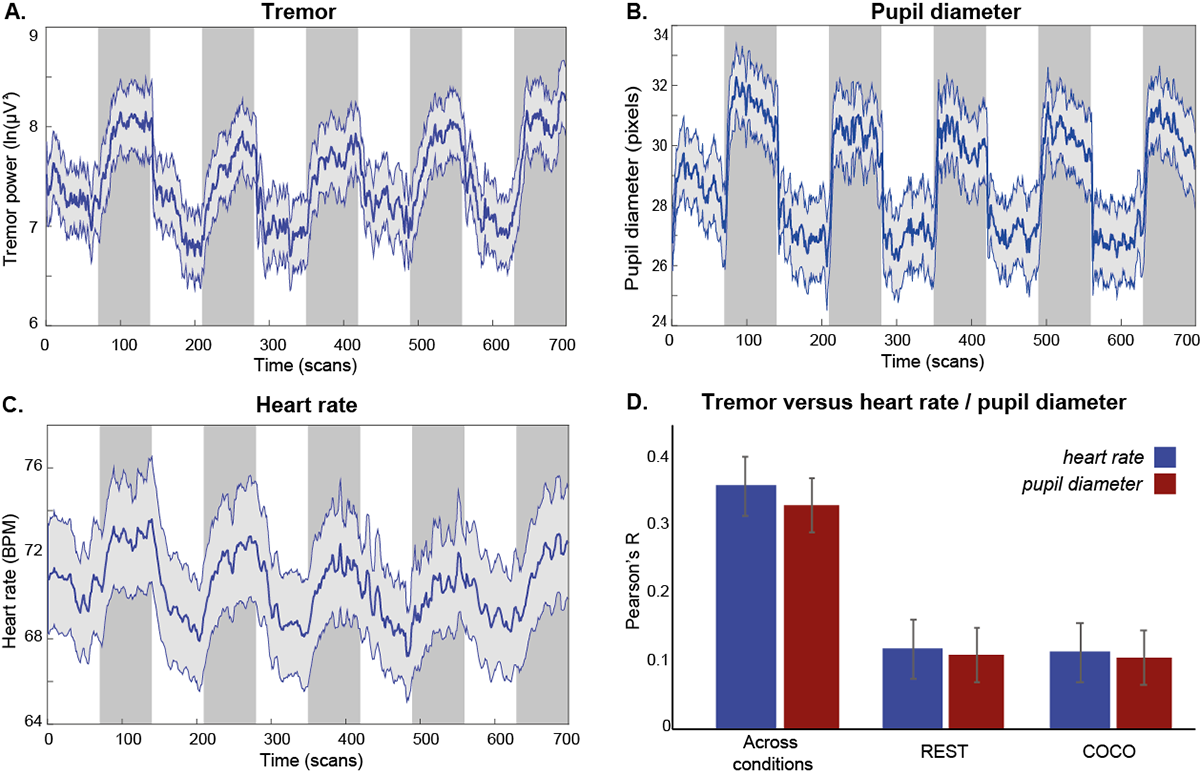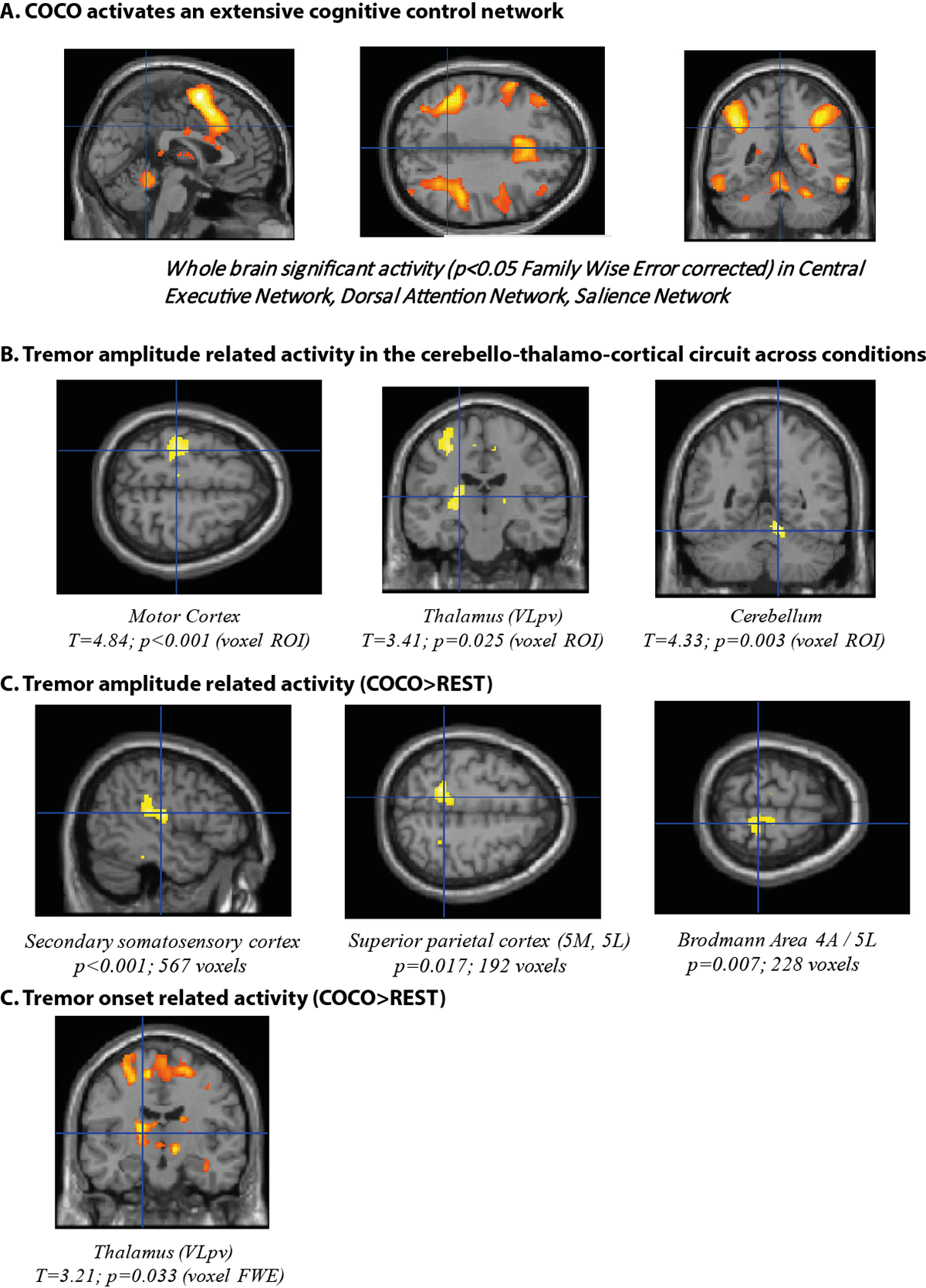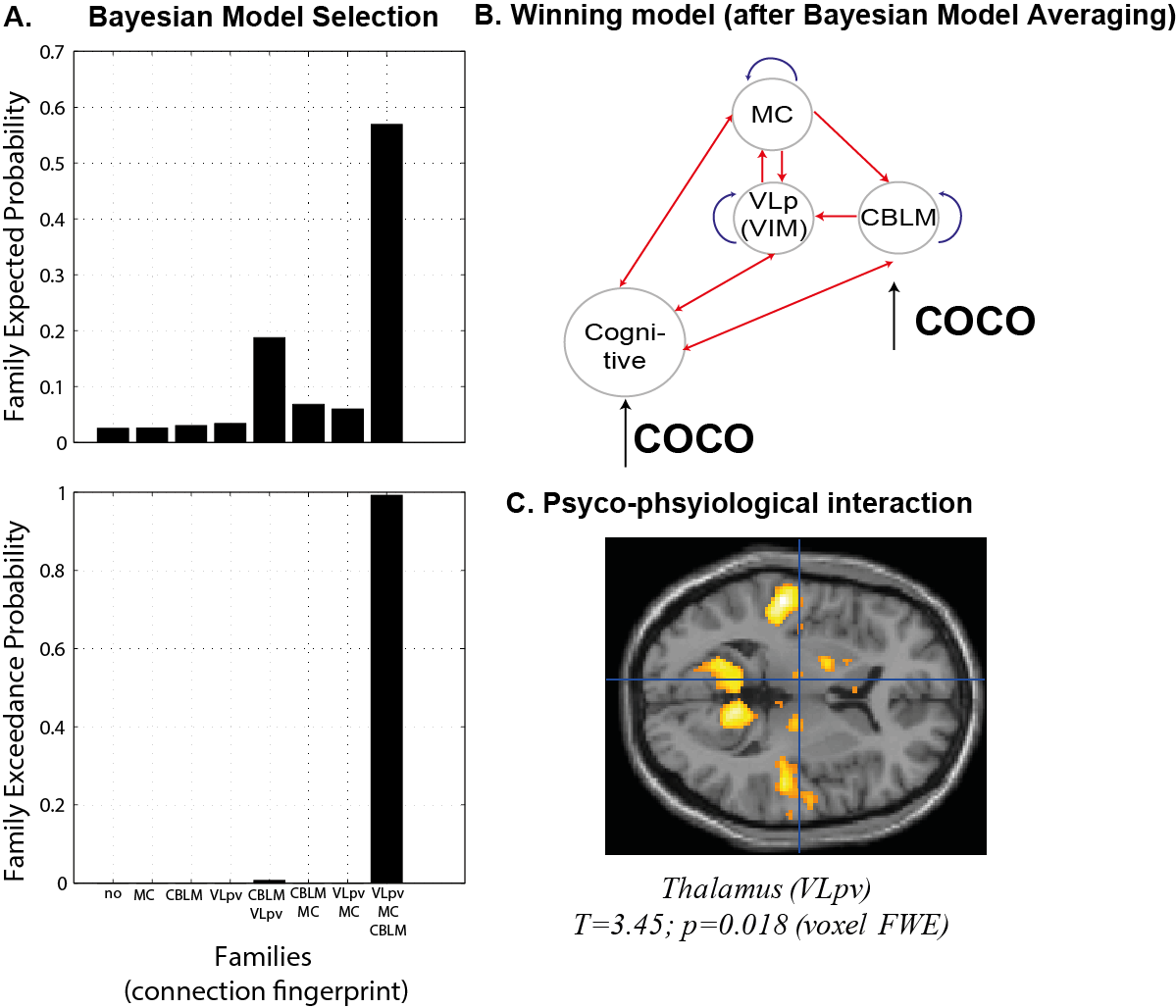Session Information
Date: Tuesday, September 24, 2019
Session Title: Tremor
Session Time: 1:45pm-3:15pm
Location: Les Muses Terrace, Level 3
Objective: To elucidate the neural mechanisms underlying tremor amplification during cognitive effort.
Background: Parkinson’s tremor is related to cerebral activity in both basal ganglia and a cerebello-thalamo-cortical circuit. Cognitiveco-activation (COCO) such as during an arithmetic serial subtraction task markedly increases tremor amplitude, but the neural mechanisms responsible are unknown. There is evidence that cognitive co-activation simply reflects acute (cognitive) stress which may amplify tremor via direct noradrenergic mechanisms. However, it is also possible that COCO recruits a cerebral cognitive network, that indirectly influences tremor related activity either via excitatory (i.e. stimulating) or disinhibitory (i.e. distracting) effects.
Method: We collected concurrent electromyography (EMG) and functional MRI (fMRI) recordings of 33 tremulous Parkinson’s disease patients in an OFF-medication state. During scanning, we used a block-design where patients were either at rest or performing a mental cognitive arithmetic serial subtraction task (COCO). Heart rate and pupil diameter were measured simultaneously. Next, we compared cerebral (tremor related) activity and effective connectivity during COCO versus rest.
Results: COCO significantly increased tremor amplitude, pupil diameter and heart rate which were all tightly correlated. During both conditions, tremor amplitude correlated with cerebral activity in a cerebello-thalamo-cortical circuit. However, COCO increased tremor onset-related activity in the thalamus and tremor amplitude-related activity in the contralateral secondary somatosensory cortex, superior parietal cortex and ipsilateral motor cortex. Furthermore, COCO recruited an extensive cerebral cognitive control network. Dynamic Causal Modeling indicated that COCO directly influenced the cerebello-thalamo-cortical tremor circuit via the thalamus, and also indirectly via the cognitive control network. Importantly, a psycho-physiological interaction analysis showed that COCO increased rather than reduced functional connectivity between the cognitive control network and the cerebello-thalamo-cortical tremor circuit.
Conclusion: Cognitive effort amplifies tremor by stimulating tremor-related activity in the thalamus, both via a direct (noradrenergic) effect as well as indirectly by recruiting an extensive cognitive network that enhances tremor-related activity in the cerebello-thalamo-cortical circuit.
To cite this abstract in AMA style:
MF. Dirkx, H. Zach, A. van Nuland, BR. Bloem, I. Toni, R. Helmich. How cognitive effort increases Parkinson’s tremor – an effictive connectivity fMRI study [abstract]. Mov Disord. 2019; 34 (suppl 2). https://www.mdsabstracts.org/abstract/how-cognitive-effort-increases-parkinsons-tremor-an-effictive-connectivity-fmri-study/. Accessed February 9, 2026.« Back to 2019 International Congress
MDS Abstracts - https://www.mdsabstracts.org/abstract/how-cognitive-effort-increases-parkinsons-tremor-an-effictive-connectivity-fmri-study/



